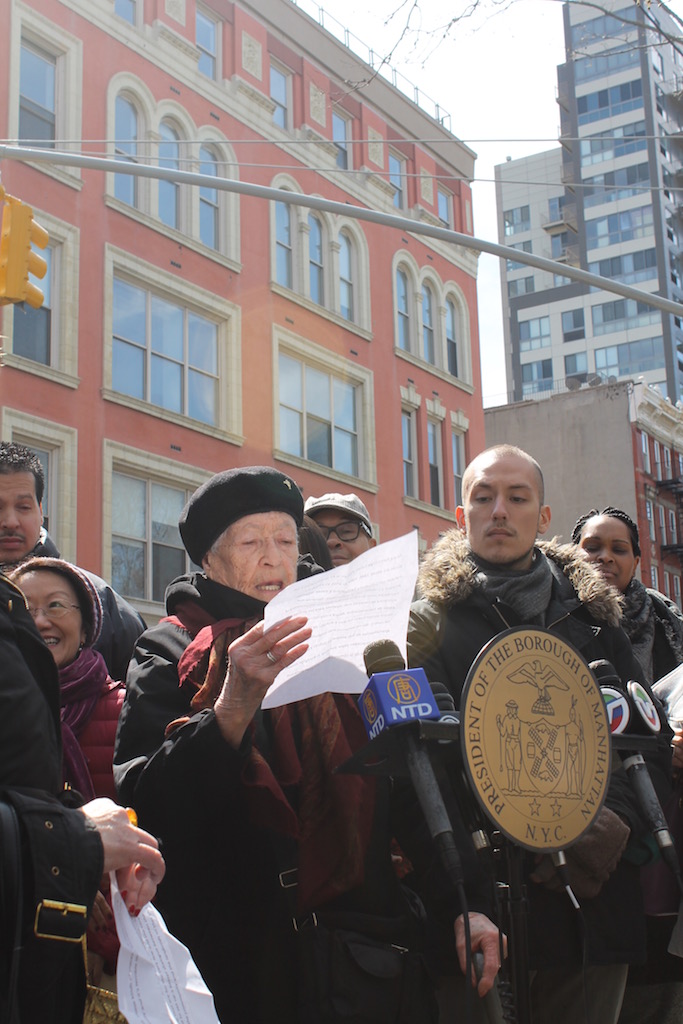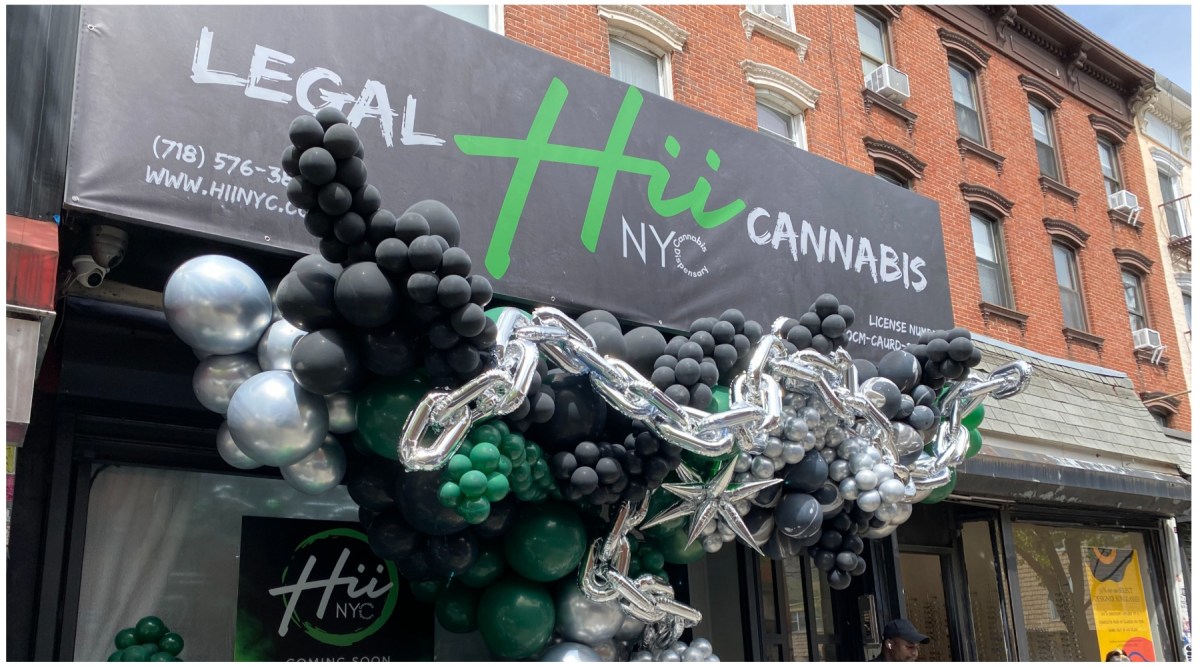
BY SYDNEY PEREIRA | After Mt. Sinai Health System recently signed a letter of intent to lease Rivington House from Slate Property Group to relocate its behavioral-health center there, some Lower East Siders demanded more collaboration and input with the mammoth health provider on the project.
Mt. Sinai is in the midst of expanding its Downtown services, and locals want them to collaborate on ways to add nursing-home beds to the neighborhood.
Last Thurs., Jan. 3, hospital bigwigs explained the planned services for Rivington House at a Community Board 3 Health, Seniors & Human Services Committee meeting.
Mt. Sinai plans to relocate its current behavioral-health center, Bernstein Pavilion, located on the eastern edge of Stuyvesant Square park, into Rivington House on Rivington St. between Eldridge and Forsyth Sts.
Bernstein’s current services include inpatient psychiatric beds, detox and rehabilitation beds, outpatient mental health and addiction clinics, ambulatory detoxification, and “Assertive Community Treatment,” or ACT, which is a specific health practice with myriad services for people diagnosed with severe mental health issues.
Mt. Sinai plans to relocate those existing services to Rivington House, while adding about 10 intensive-crisis and respite beds, a partial hospitalization program and intensive outpatient program, mobile and in-home services, behavioral healthcare engagement teams and a primary-care unit, too.
“This model of care will be a national model of care,” said Jeremy Boal, chief medical officer at Mt. Sinai. “I guarantee it.”
The intensive-crisis and respite beds will be what Sabina Lim, Mt. Sinai’s chief of strategy for behavioral health, called a “therapeutic bed-and-breakfast” for patients dealing with drastic, acute life crises who need a short-term place to stay and recover.
Boal estimated the facility could have 60 behavioral-health beds, 60 detox beds and another 10 crisis and respite beds — a rough and preliminary estimate, he stressed.
A critical point of the center’s healthcare model is to integrate various services into one place, particularly for people with addictions and mental health issues.
Often, Lim said, people struggling with both addiction and mental health issues have to find specific treatment at two different facilities. Under Mt. Sinai’s proposed model, different needs would be met under one roof.
Interior renovations at Rivington could begin early next year and be complete by 2021.
It is too soon to know exactly what would happen to the Bernstein facility after it is sold, but the profits would be reinvested in Downtown health efforts, according to the hospital.
After a scare that the Rivington House would be demolished for luxury condos in a scandal that rocked the de Blasio administration, many in the community have been fighting for the building to be returned to a 24/7 care facility for locals with Alzheimer’s disease or other disabilities.
“Everybody has those stories where there is someone close to you that is going to need that level of care, and to have that proximity is key,” said Debra Jeffreys-Glass, vice chairperson of C.B. 3’s Health Committee and a member of Neighbors to Save Rivington.
However, others at the meeting felt as if two serious health-service needs — mental health/addiction treatment and nursing-home beds for the elderly — were being pitted against each other.
Board 3 District Manager Susan Stetzer expressed skepticism about Slate, above all, charging its actions have always been “anti-community.”
When Rivington House shuttered, more than 200 beds for 24/7 nursing-home care were lost.
“This could be a win-win” if Mt. Sinai would pony up resources and collaborate on ways to add nursing-home beds for the Lower East Side neighborhood, said Jeffreys-Glass, stressing she was speaking for herself, not C.B. 3.
“We’ve already made it clear that we’ve lost something that we’re trying to get back,” she said.

















